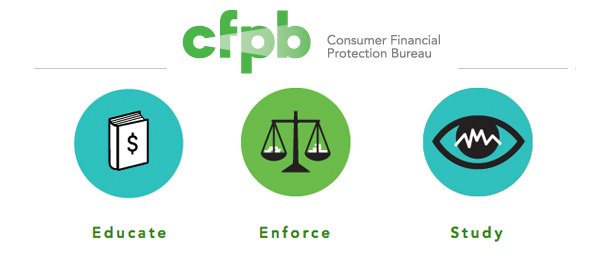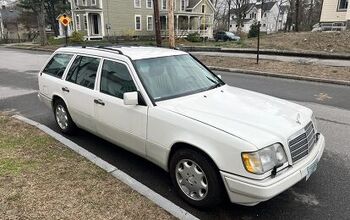U.S. DoJ, Consumer Financial Protection Bureau Investigate Toyota, Honda, Other Automakers' Credit Arms For Lending Bias
According to regulatory filings by Toyota Motor Credit Corp., the giant automaker’s car financing arm, and American Honda Finance Corp., which fills a similar role for Honda, the United States Consumer Financial Protection Bureau and the Department of Justice are investigating major auto manufacturers for possible lending bias based on race, which would be a violation of the 1974 Equal Credit Opportunity Act. According to Bloomberg, the agencies are looking into how loans that the automakers’ credit companies provide to auto dealers are priced. Bloomberg reports that as many as seven car companies have been asked for data that may be related to the borrowers’ races and interest rates charged. Both government agencies declined to comment on the matter.
The Justice department and the CFPB are apparently looking into what the consumer protection agency calls “dealer markup”, what the industry refers to “dealer participation” or “dealer-assisted finance”, the practice of lenders allowing dealers to add to the interest rate they are charged by the automakers’ credit arms so they can pocket the difference. Dealers say that the added interest is a fair price for arranging the loan, processing the paperwork and related services. Consumer activists say the arrangement gives dealers an incentive to push more expensive loans.
In March, the CFPB warned banks that they face the agency’s enforcement procedures if they are found to be funding discriminatory vehicle loans provided by car dealers. At the time, car dealers widely criticized the agency for what the dealers say is an attempt to get around statutory restrictions on the CFPB’s power. The 2010 “Dodd-Frank” law that created the agency explicitly exempted automobile dealers from being regulated by tha CFPB. Dealers say that the CFPB is using the automakers’ credit arms to do what Congress specifically prohibited the government from doing. Members of Congress have asked the agency how it will determine the existence of discrimination.
The CFPB said last year that it would use a controversial legal theory known as “disparate impact” which says that even if there is demonstrably no intention to discriminate, if statistical analysis shows that the result of policies is over or under representation in the results relative to demographics, that itself can be used as proof of discrimination. Because the theory is based on statistical analysis, the agencies have requested a large amount of data on borrowers’ races and the interest rates they were charged. Critics of “disparate impact” say that besides ignoring intent, an important factor in American jurisprudence, the theory’s advocates apply it in a discriminatory manner themselves.
More by TTAC Staff
Latest Car Reviews
Read moreLatest Product Reviews
Read moreRecent Comments
- Probert They already have hybrids, but these won't ever be them as they are built on the modular E-GMP skateboard.
- Justin You guys still looking for that sportbak? I just saw one on the Facebook marketplace in Arizona
- 28-Cars-Later I cannot remember what happens now, but there are whiteblocks in this period which develop a "tick" like sound which indicates they are toast (maybe head gasket?). Ten or so years ago I looked at an '03 or '04 S60 (I forget why) and I brought my Volvo indy along to tell me if it was worth my time - it ticked and that's when I learned this. This XC90 is probably worth about $300 as it sits, not kidding, and it will cost you conservatively $2500 for an engine swap (all the ones I see on car-part.com have north of 130K miles starting at $1,100 and that's not including freight to a shop, shop labor, other internals to do such as timing belt while engine out etc).
- 28-Cars-Later Ford reported it lost $132,000 for each of its 10,000 electric vehicles sold in the first quarter of 2024, according to CNN. The sales were down 20 percent from the first quarter of 2023 and would “drag down earnings for the company overall.”The losses include “hundreds of millions being spent on research and development of the next generation of EVs for Ford. Those investments are years away from paying off.” [if they ever are recouped] Ford is the only major carmaker breaking out EV numbers by themselves. But other marques likely suffer similar losses. https://www.zerohedge.com/political/fords-120000-loss-vehicle-shows-california-ev-goals-are-impossible Given these facts, how did Tesla ever produce anything in volume let alone profit?
- AZFelix Let's forego all of this dilly-dallying with autonomous cars and cut right to the chase and the only real solution.


































Comments
Join the conversation
Could someone at TTAC please unsubscribe me from the site ? I contacted the site a couple of times and asked to be removed before. Thank you.
I have posted all over this thread, but I want to restate my suggestion that state level sting operations such as those directed at realtors would work better than these litigation by math schemes if the real desire is to reduce racism in lending. Real estate is a good example. Social scientists agree that people will not naturally integrate in housing choices. Quite the opposite, if you started with perfect diversity, over time, races would segregate by choice. You could easily prove steering discrimination by realtors using statistical results as is being done here even if the realtors were being particularly guarded and steering for integration on purpose! However, I think the real estate business is in better shape on this issue than car dealers. The realtors know there are active sting operations out there, and the bad actors will be the ones busted, no the banks or the companies, but the individual ad actors. They therefore have a strong incentive to conform.